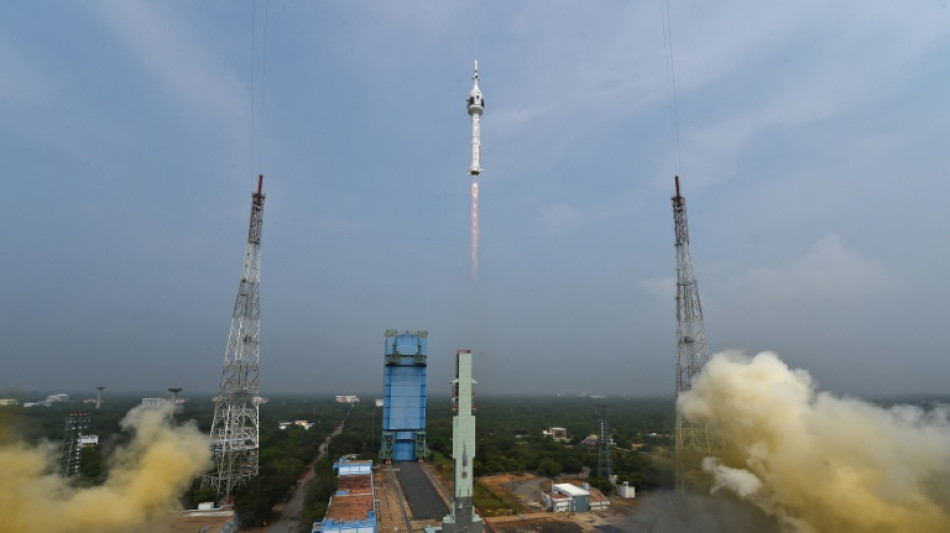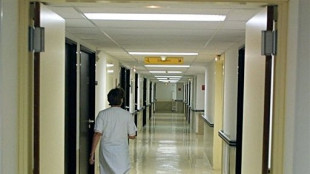
Modi says India's first astronauts will inspire nation

Indian Prime Minister Narendra Modi on Tuesday toasted the four astronauts preparing for the nation's first crewed orbital mission, saying the latest advance in spacefaring would inspire the next generation.
"The countdown of the rocket inspires thousands of children in India, and those making paper planes today dream of becoming scientists like you", Modi said.
The Gaganyaan -- or "Skycraft" -- mission is slated to launch the astronauts into Earth's orbit in 2025, an important measure of the Indian Space Research Organisation's technical capabilities.
"All of you are opening new doors of future possibilities," Modi told ISRO scientists on Tuesday.
Visiting the Vikram Sarabhai Space Centre in the southern state of Kerala, Modi presented "astronaut wings" to the four men: Ajit Krishnan, Prashanth Balakrishnan Nair, Angad Pratap and Shubhanshu Shukla.
"They are not just four names or individuals, they are four 'shakti' (the Hindu goddess of power) carrying the aspirations of 1.4 billion Indians into space," he added.
Gaganyaan is the first mission of its kind for India and comes with an estimated price tag of $1.08 billion, according to ISRO.
India plans to send the quartet beyond the reaches of Earth's atmosphere for three days before bringing them back with a soft landing in its territorial waters.
Modi has previously announced plans to launch a space station by 2034, and to put people on the Moon by 2040.
In August, India became just the fourth nation to land an unmanned craft on the Moon, after Russia, the United States and China.
The following month, it launched a probe to observe the outermost layers of the Sun from solar orbit.
India's space programme has grown considerably in size and momentum since it first sent a probe to orbit the Moon in 2008, and it has steadily matched the achievements of established spacefaring powers, at a fraction of the cost.
India can keep costs low by copying and adapting existing technology, and tapping an abundance of highly skilled engineers who earn a fraction of their foreign counterparts' wages.
(O.Robinson--TAG)

 London
London

 Manchester
Manchester
 Glasgow
Glasgow
 Dublin
Dublin
 Belfast
Belfast
 Washington
Washington
 Denver
Denver
 Atlanta
Atlanta
 Dallas
Dallas
 Houston Texas
Houston Texas
 New Orleans
New Orleans
 El Paso
El Paso
 Phoenix
Phoenix
 Los Angeles
Los Angeles



